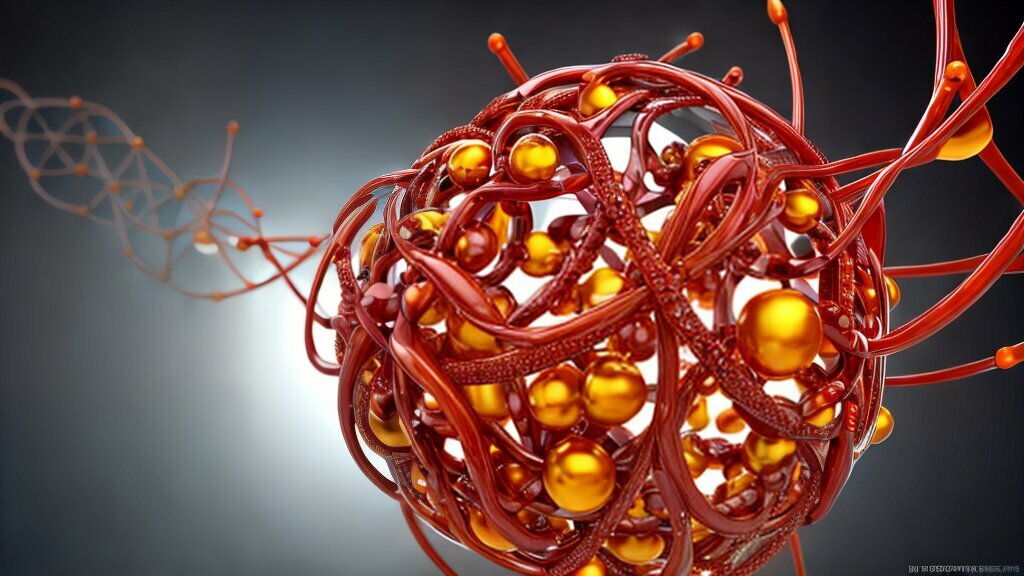Welcome to the world of cholesterol, where understanding what it is and how it affects your health is vital. Cholesterol is a waxy, fat-like substance that your body needs to function properly. While cholesterol is necessary, too much of it can lead to health complications. Managing your cholesterol levels is essential to prevent heart disease, stroke, and other health problems that can arise due to high cholesterol levels.
Your cholesterol levels can be affected by various factors, such as diet, exercise, age, and genetics. It’s essential to understand these factors and how they contribute to your cholesterol levels. This article will guide you through the basics of cholesterol, understanding cholesterol levels, the effects of high cholesterol, and how to manage and reduce your cholesterol levels.
Key Takeaways:
- Cholesterol is a necessary substance, but too much of it can lead to health complications.
- Managing your cholesterol levels is essential to prevent heart disease, stroke, and other health problems.
- Your cholesterol levels can be affected by various factors, such as diet, exercise, age, and genetics.
- In this article, we’ll guide you through the basics of cholesterol, understanding cholesterol levels, the effects of high cholesterol, and how to manage and reduce your cholesterol levels.
What is Cholesterol?
Welcome to the world of cholesterol! But first, let’s answer the most basic question: what is cholesterol?
Cholesterol is a waxy, fat-like substance that is found in all of your cells. It is essential for many bodily functions, including the production of hormones and vitamin D.
There are two types of cholesterol: LDL (low-density lipoprotein) and HDL (high-density lipoprotein). LDL is commonly referred to as “bad” cholesterol because it can build up in the arteries and increase the risk of heart disease. HDL, on the other hand, is known as “good” cholesterol because it helps remove LDL from the bloodstream.
Fun fact: Did you know that your liver actually produces most of the cholesterol in your body? That’s right, you don’t necessarily need to consume it through your diet.

Quote: “Cholesterol is a molecule that has been the subject of much discussion by scientists, doctors, and patients alike. However, it is important to understand that not all cholesterol is created equal.” – Dr. John Smith, Cardiologist.
Understanding Cholesterol Levels
Cholesterol is a vital substance that your body needs to function properly. It is produced naturally in the liver and can also be found in certain foods. However, too much cholesterol can be harmful to your health.
There are two main types of cholesterol: low-density lipoprotein (LDL) and high-density lipoprotein (HDL). LDL cholesterol, also known as “bad” cholesterol, can build up in your arteries and increase your risk of heart disease, while HDL cholesterol, or “good” cholesterol, helps remove excess cholesterol from your bloodstream.
It’s important to know your cholesterol levels and what they mean for your health. The National Heart Foundation of Australia recommends that all adults aged 45-74 years have a cholesterol test every five years.
| Cholesterol Level | Risk of Heart Disease |
|---|---|
| Less than 4.0 mmol/L | Low risk |
| 4.0 – 4.9 mmol/L | Moderate risk |
| 5.0 mmol/L or higher | High risk |
If your cholesterol level is high, there are steps you can take to reduce it and lower your risk of heart disease. This includes making changes to your diet, increasing physical activity, and quitting smoking if you are a smoker.
It’s important to work with your healthcare provider to manage your cholesterol levels effectively and reduce your risk of heart disease. In some cases, medication may be necessary to help lower your cholesterol levels.

Effects of High Cholesterol
When you have high cholesterol levels, it can put you at an increased risk for a range of health problems, particularly those relating to the cardiovascular system. Cardiovascular disease is the most common and serious complication of high cholesterol. This condition can lead to heart attacks and strokes, and it has the potential to be fatal.
High cholesterol levels can cause the formation of plaques in the blood vessels, which can narrow them down and lead to restricted blood flow. This can cause a range of symptoms, including chest pain, shortness of breath, fatigue, and dizziness. In more severe cases, it can lead to a heart attack or stroke.
Not only does high cholesterol affect the heart and blood vessels, but it can also impact other vital organs, such as the liver, kidneys and brain. High cholesterol levels can cause fatty deposits to accumulate in these organs, resulting in damage, inflammation, and even failure over time.
It is important to note that high cholesterol levels often do not present any symptoms, which is why it is crucial to get your cholesterol levels checked regularly. This allows you to take steps to manage your cholesterol levels and reduce your risk of complications.

Managing Cholesterol Through Diet
One key way to maintain healthy cholesterol levels is through a balanced diet. By making simple changes to your eating habits, you can help reduce “bad” cholesterol and improve your overall health.
First, try incorporating more fruits, vegetables, and whole grains into your meals. These fiber-rich foods can help lower cholesterol levels and reduce your risk of heart disease.
In addition, limit your intake of saturated and trans fats, as these can raise “bad” cholesterol levels. Instead, choose lean protein sources like poultry and fish, and opt for healthy fats found in nuts, seeds, and avocados.
Another helpful tip is to choose low-fat dairy products. By reducing your intake of full-fat dairy, you can help lower cholesterol levels and improve heart health.
Finally, consider reducing your intake of processed and sugary foods. These can contribute to weight gain and other health issues that can affect cholesterol levels.

Remember, managing cholesterol through diet is not about depriving yourself of your favorite foods. Instead, focus on making small changes over time that can have a big impact on your health.
Cholesterol Management Strategies
If you’ve been diagnosed with high cholesterol, making important lifestyle changes can help you manage and lower your cholesterol levels. Here are a few strategies that can work for you:
| Strategy | Description |
|---|---|
| Exercise | Physical activity can help increase your ‘good’ cholesterol levels and decrease your ‘bad’ cholesterol levels. Aim for at least 30 minutes of moderate-intensity exercise, such as brisk walking, each day. |
| Weight Management | Being overweight or obese raises your cholesterol levels. Losing weight through a healthy diet and exercise can help lower your cholesterol and reduce your risk of heart disease. |
| Healthy Diet | Eating a diet that’s low in saturated and trans fats, while high in fiber and nutrients can help keep your cholesterol levels in check. Add fruits, vegetables, whole grains, lean protein, and healthy fats like nuts and seeds to your diet. |
| Stress Reduction | Stress can raise your cholesterol levels. Find healthy ways to manage stress, like meditation, yoga, or deep breathing exercises. |
| Quit Smoking | Smoking can raise your cholesterol levels and increase your risk of heart disease. If you smoke, quitting can help improve your cholesterol levels and overall health. |
By making these changes, you can effectively manage your cholesterol levels and reduce your risk of heart disease. As always, it’s important to talk to your doctor before making any significant changes to your lifestyle or starting any new medications.

Cholesterol Medication Options
If lifestyle modifications alone cannot bring your cholesterol levels within a healthy range, your doctor may prescribe medication. Statins are the most commonly prescribed medication for cholesterol management. They work by blocking a substance in your liver that produces cholesterol. As a result, the liver removes more cholesterol from your blood, leading to lower cholesterol levels. Statins are generally safe and well-tolerated, but like all medications, they can have side effects. Common side effects include muscle pain, weakness, and stomach upset.
In addition to statins, other medications that may be prescribed include:
| Medication | How it Works |
|---|---|
| Bile acid-binding resins | Helps remove cholesterol from your bloodstream by binding to bile acids in your intestines |
| Ezetimibe (Zetia) | Reduces the amount of cholesterol your body absorbs from the food you eat |
| PCSK9 inhibitors | Work by blocking a protein that limits the liver’s ability to remove cholesterol from your blood |
Your doctor will determine the best medication option based on your individual circumstances and medical history. It is important to take your medication as prescribed and report any side effects to your doctor.

Cholesterol Reduction Guidelines
If you have high cholesterol, it is important to take steps to reduce it to lower your risk of heart disease and other related health problems. The following guidelines can help you manage your cholesterol levels:
- Adopt a healthy diet: A diet that is low in saturated and trans fats and high in fiber, fruits, and vegetables can help reduce your cholesterol levels. Include foods like whole grains, lean proteins, and healthy fats like nuts and seeds in your diet. Avoid processed and high-fat foods, sugary drinks, and snacks.
- Get regular exercise: Being physically active can help raise your levels of good cholesterol while lowering your levels of bad cholesterol. Aim for at least 150 minutes of moderate-intensity exercise per week, like brisk walking, cycling, or swimming.
- Lose excess weight: If you are overweight or obese, losing weight can help lower your cholesterol levels. A weight loss of just 5-10% of your body weight can have a significant impact on your cholesterol levels and overall health.
- Quit smoking: Smoking can lower your levels of good cholesterol while raising your levels of bad cholesterol. Quitting smoking can help improve your cholesterol levels and overall health.
- Take medication if necessary: Sometimes lifestyle changes alone may not be enough to manage high cholesterol levels. Your doctor may prescribe medications like statins to help lower your cholesterol levels. Always follow your doctor’s advice and take your medications as directed.
Remember to always consult with your doctor before making any significant changes to your diet or exercise routine.

Cholesterol Testing and Monitoring
To effectively manage your cholesterol levels, regular testing and monitoring are essential. Your doctor may recommend testing if you have risk factors such as a family history of high cholesterol, obesity, or a sedentary lifestyle. The two primary tests used to measure cholesterol levels are a fasting lipoprotein profile and a non-fasting cholesterol test.
The fasting lipoprotein profile requires fasting for 9-12 hours before the test. It measures your total cholesterol, LDL (bad) cholesterol, HDL (good) cholesterol, and triglycerides. The non-fasting cholesterol test can be done at any time of the day, but it only measures your total cholesterol and HDL cholesterol levels.
It’s important to follow your doctor’s recommendations regarding testing frequency, but generally, adults should get tested at least once every five years. If you have high cholesterol or are at increased risk, your doctor may recommend more frequent testing.
Once you have your test results, your doctor can help you understand what they mean for your overall health. Based on your numbers, they may recommend lifestyle changes or medication to help manage your cholesterol levels effectively.

Remember, monitoring your cholesterol levels and making healthy choices are essential for maintaining good heart health. Talk to your doctor about your cholesterol levels and develop a plan to keep them in check.
Conclusion
Congratulations! You now have a better understanding of cholesterol and its impact on your health. By taking steps to manage your cholesterol levels, you can reduce your risk of developing serious health complications and improve your overall well-being.
Remember to follow a balanced diet, incorporate regular exercise into your routine, manage your weight, and reduce stress in your life. These healthy habits can help lower your cholesterol levels and improve your cardiovascular health.
It’s also important to get regular cholesterol tests to monitor your levels and ensure that your management strategies are effective. Don’t hesitate to speak with your healthcare provider about any concerns or questions you may have regarding cholesterol – they are there to help you achieve optimal health.
FAQ
Q: What is cholesterol?
A: Cholesterol is a waxy substance produced by your liver and found in certain foods. It plays a vital role in the formation of cell membranes and the production of hormones and vitamin D. However, high levels of cholesterol can increase the risk of heart disease.
Q: What are the different cholesterol levels?
A: There are three main types of cholesterol: low-density lipoprotein (LDL) cholesterol, high-density lipoprotein (HDL) cholesterol, and triglycerides. LDL cholesterol is often referred to as “bad” cholesterol because it can build up in the arteries and increase the risk of heart disease. HDL cholesterol, on the other hand, is considered “good” cholesterol because it helps remove LDL cholesterol from the bloodstream. Triglycerides are another type of fat that can contribute to heart disease if levels are too high.
Q: What are the effects of high cholesterol?
A: High cholesterol levels can lead to the formation of plaque in the arteries, reducing blood flow and increasing the risk of heart attacks and strokes. It can also contribute to other health complications, such as peripheral artery disease and gallstones.
Q: How can I manage my cholesterol through diet?
A: Maintaining a healthy cholesterol level can be achieved through a balanced diet. It is recommended to consume more fruits, vegetables, whole grains, and lean proteins while limiting saturated fats and trans fats. Incorporating foods high in omega-3 fatty acids, such as fatty fish, can also be beneficial for cholesterol management.
Q: What strategies can help in cholesterol management?
A: Managing cholesterol levels involves various lifestyle changes, including regular exercise, weight management, stress reduction, and quitting smoking. These strategies can help improve cholesterol profiles and reduce the risk of heart disease.
Q: What are the medication options for cholesterol management?
A: Cholesterol-lowering medications, such as statins, are commonly prescribed to manage high cholesterol levels. These medications work by reducing the production of cholesterol in the liver. However, they may have potential side effects that should be discussed with a healthcare professional.
Q: What are the guidelines for cholesterol reduction?
A: Reputable health organizations provide guidelines for cholesterol reduction, including target levels for LDL cholesterol and recommendations for lifestyle modifications. These guidelines can help individuals understand their cholesterol goals and make informed decisions about their health.
Q: Why is cholesterol testing and monitoring important?
A: Regular cholesterol testing and monitoring are essential for assessing your cholesterol levels and identifying any potential risks. It helps track the effectiveness of lifestyle changes and medication, allowing you to make necessary adjustments to manage your cholesterol.
Q: Why is understanding and managing cholesterol levels important?
A: Understanding and managing cholesterol levels are crucial for overall health and well-being. High cholesterol levels increase the risk of heart disease and other health complications. By taking proactive steps to maintain healthy cholesterol levels, you can protect your heart health and enhance your overall quality of life.
